The best herbal tea: recipes. How to make medicinal tea at home
The healing properties of herbal teas have been known to people since ancient times. They were used not only for the treatment of ailments, but also as a preventive measure, increasing vitality, and general health promotion. In addition, unlike chemical medicines, herbal teas are a completely natural product that has a pleasant taste and wonderful aroma.
herbal teas
Herbal teas, tinctures, decoctions - all these drinks came to us from ancient times. Already in those days, their beneficial properties were used by people with might and main. Then every housewife was a bit of a witch and knew what herbal teas you can drink. All natural gifts were used: roots, herbs, berries.
From time immemorial, herbal preparations have been prepared, which relieved fatigue, toned up in the morning, and helped to fall asleep at a late hour. Medicinal teas relieved diseases, restored the supply of vitamins and useful microelements in the body. The best herbal teas are still used by people today.
Properties of herbal teas
What are the benefits of herbal tea? Recipes (you can easily brew any tea at home) are diverse not only in their content, but also in purpose. In addition to herbs, the collection may include various healing components: fruits, roots, buds. Sometimes traditional tea is also added to herbal teas. Fees can contain up to ten components.
Herbal preparations for tea are usually divided according to their effect on:
- Therapeutic.
- Preventive.
- Tonic.
- Soothing.
- Vitamin.
Ready-made herbal teas can be purchased at any pharmacy and supermarket. However, it is hardly worth relying on their quality, because no one can guarantee that they are made from natural and environmentally friendly raw materials. Since we consume a lot of non-natural products that are harmful to the body in our daily life, we need natural herbs with all their beneficial properties to maintain health.
The best option is self-collected all the necessary plants. The preparation itself is a very interesting and exciting process that will bring you many pleasant moments of unity with nature. You just need to know the rules by which herbs are harvested.
In the conditions of living in a metropolis and lack of time, not everyone will be able to allocate time to collect plants. Then you can be advised to purchase all the necessary herbs in the market, as a rule, there are grandmothers selling ready-made plants.
How to brew tea?
We want to note right away that only one plant is brewed for medicinal purposes. Then the finished drink will have a targeted effect. And the combined tea will have a whole range of therapeutic effects, since it will contain a large number of biologically active substances that are found in different plants. At the same time, our unique organisms independently select the necessary elements from the entire presented complex and send them for processing into metabolic processes.
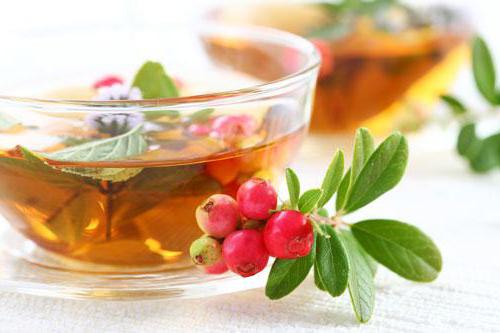
As a rule, the composition of herbal tea includes restorative and immunostimulating components. And most importantly, they do not contain caffeine, so drinks can be given to children too.
The main components of teas
What is in herbal tea? Recipes at home can come up with a wide variety. However, first you need to figure out which components are used in different situations.
So, let's list the most commonly used components:
- Flowers of oregano, chamomile, linden, etc.
- Leaves of raspberry, mint, currant, strawberry.
- Herb lemon balm, oregano, sage, thyme, valerian, St. John's wort.
- The fruits of raspberry, hawthorn, sea buckthorn, currant, blackberry, mountain ash.
We emphasize once again that these are far from all the components, there are actually a lot of them. It is good to add various spices to the preparations, they give an exquisite taste and aroma, and also bring additional vitamins. For such purposes, you can use cinnamon, vanilla, pepper, cloves.
medicinal tea
You need to understand that any medicinal herbal tea (recipes at home can be invented and modified) does not have an instant effect. After all, this is not a pill, and therefore it takes some time. However, regular use of it will help to cope with the problem. Herbal teas for every day (we will give recipes in the article) will help to establish processes inside the body:
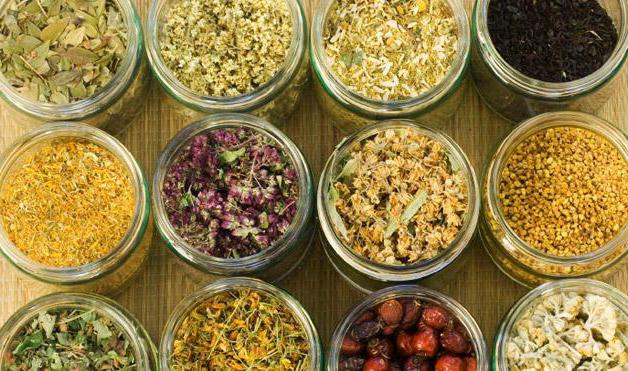
- Savory and licorice are added to tea to relieve stress.
- With a cold, wormwood, sage, licorice root helps well.
- With a tendency to depression, you should regularly use St. John's wort, ginseng, rosemary.
- If you are worried about stomach pains, then dandelion flowers and dill are added to tea.
- Tea with valerian, hop cones, chamomile, lemon balm, verbena helps to cope with sleep disorders.
- If you get irritated at the slightest pretext, drink tea with valerian and lavender.
- To relax and calm down, you should use a drink made from lemon balm, hops, strawberry grass.
- Motherwort will help with heart problems.
- Linden tea (useful properties and contraindications will be discussed later) has a wide range of qualities - antiseptic, choleretic, expectorant, diaphoretic, diuretic.
- Mint, thyme and sage will help with frequent headaches.
Grated ginger can be added to any of the listed fees. It enhances the anti-inflammatory, expectorant, stimulating effect of tea on the body.
Multivitamin herbal teas for every day
The recipes for such teas are not difficult, but the benefits of them are very great. They can be prepared on the basis of fruits and berries. Herbal and are a storehouse of vitamins. Most of the nutrients are found in rose hips. They also use mountain ash, blackberries, strawberries, black and red currants, and sea buckthorn to make decoctions. Not only healthy, but also delicious herbal teas are obtained by adding aromatic herbs: oregano.
To get a multivitamin drink, all components are placed in equal parts. Such a drink is brewed according to the general rules. In the cold season, tea is drunk warm with the addition of honey and ginger. In summer, all decoctions and infusions can be consumed cold with the addition of ice. Such drinks are good to tone up in the heat.
Strawberry tea: strawberry leaves (10 g), St. John's wort (2 g), mint (2 g) are poured with a glass of boiling water. The drink is infused for ten minutes.
Heather heather (2 g), rosehip leaf (2 g), strawberry leaves (10 g) are poured with a glass of boiling water. Insist from five to ten minutes.
Rowan tea: dried rowan fruits (30 g), raspberries (5 g), currant leaves (2 g). Infuse for five to ten minutes and use as tea leaves.
Tonic fees
Tonic teas are suitable for daily use, they not only have a pleasant taste, but also have a positive effect on the body. Juniper, hawthorn, black currant, mountain ash, wild rose, oregano, blueberry, St.
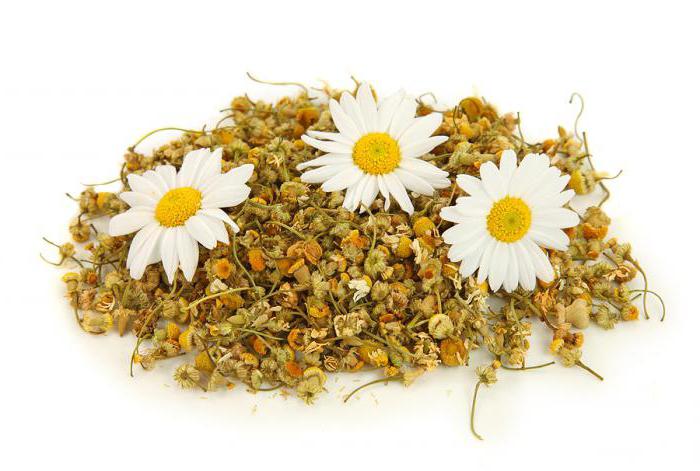
Such fees in the winter should be consumed hot, and chilled in the summer. They quench thirst well and invigorate cold teas with a slice of lemon or zest, raspberry and blackberry leaves. In hot weather, mint can be added to green tea.
How to choose a delicious drink?
It's no secret that any herbal tea is bitter. Therefore, you must independently choose for yourself such a collection that you will like. As a rule, one plant dominates in the collection, and the rest only harmoniously complement it, emphasizing the taste.
Compositions are always obtained according to the scheme: spices + fragrant grass + leaves of a berry plant. Cinnamon, vanilla, anise, cloves, star anise are usually used as spices. All these ingredients harmonize perfectly and open in a very special way if citruses are added to the tea.
What nuances about teas should you know?
How different can be herbal tea! Recipes at home can be used in a variety of ways. They will help diversify your usual menu, even if it is not about food, but about drinks.
At home, you can make herbal teas from the following ingredients:
- Orange slices, cinnamon, raspberry leaves.
- Lemon slices, star anise, mint.
- Carnation, lemon balm, sage,
- Lemon peel, oregano, thyme.
- Strawberry and cherry leaves, vanilla stick.
All components for teas are best stored in paper bags or cloth bags, but not more than two years. But the roots can lie for three years. Over time, herbs lose their taste, smell and all useful trace elements.
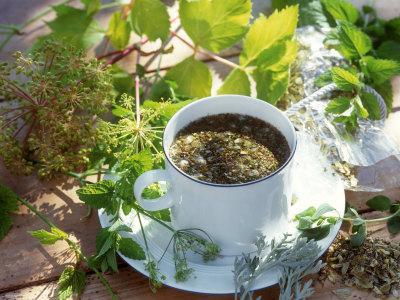
Crushed citrus zest should be added to green or black tea in advance (for example, a couple of weeks in advance). In a closed jar, the orange peels will give off their flavor to the tea petals. And as a result, you get a fragrant drink without artificial flavors.
I would like to note that you should not use the same collection for a long time. The human body has such a feature as addiction. Herbs in this sense are no exception. Over time, the usual collection may not have the desired effect. Therefore, it is better to alternate tinctures.
Lime tea
The largest amount of nutrients is found in lime flowers. Essential oils and flavonoids are the main therapeutic components. Lime blossom destroys bacteria in the human body, reduces fever, and removes phlegm.
For colds and flu, tinctures are used. For convulsions, rheumatism, diseases of the kidneys, gallbladder, stomach and intestines, colds and fever, they are taken two to three glasses a day. The drink is prepared as follows: a few tablespoons of linden flowers are poured into a glass of hot water.
Linden tea (useful properties and contraindications are given in the article) has a calming effect on the nervous system, significantly reduces blood viscosity. A drink made from flowers has completely unique properties. It contains a large number of vitamins and other medicinal components. In addition, this tea is very pleasant in taste and has a strong aroma.
Linden drink is used for hypertension, inflammatory diseases of the stomach and intestines, cystitis, pyelonephritis, urolithiasis.
As for contraindications to the use of lime color, there are not so many of them. But still, it should be remembered that the decoction has medicinal properties. Linden increases the body's defenses and has a diaphoretic effect. Therefore, tea gives a load on the heart. People with heart disease should not get involved in such a drink every day.
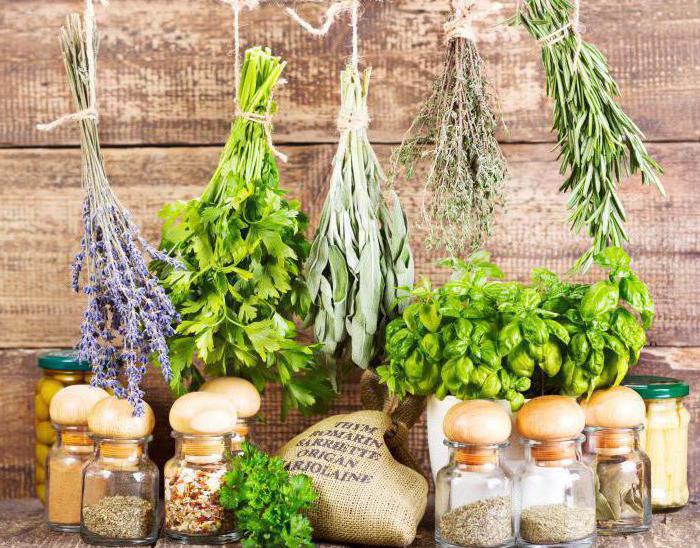
Herbal tea is brewed similarly to green or black, but there are some nuances. As a rule, two hundred grams of water put a tablespoon of the collection. Brew a drink in a teapot, wrapping it with a towel. You can also use a thermos. It will make the tea stronger and richer.
The brewing process itself lasts:
- Three minutes if we brew leaves and flowers.
- Five minutes - for seeds and leaves.
- Within ten minutes, the kidneys and roots are brewed.
The finished drink should be filtered.
Healing recipes
Herbal tea for cough: a teaspoon of mint is poured into a glass of boiling water and infused for ten minutes. Take up to five times a day.
Fortifying drink: blackcurrant leaves (1 part), raspberries (1 part), oregano grass (1 part), bergenia leaves (3 parts).
Soothing (1 part), mint leaves (1 part), hawthorn (1 part of fruits and leaves), lemon balm (1 part).
Raspberry leaves (1 part), strawberries (1 part), nettle and blackberry leaves (one part each), apple peel (1/2 part).
Fortifying infusions, multivitamins and sedatives can be drunk as regular tea after meals three times a day, or in smaller quantities. For example, soothing before bedtime, and vitamin in the morning.
Drink for neuralgia and back pain: thyme (1 part), black elderberry (1 part), lime blossom (2 parts). Tea is drunk in a long course up to four times a day (3 cups).
Tea for gastritis and stomach ulcers: bergenia (1 part), mint (2 parts), chamomile (1 part), sage (2 parts), St. John's wort (2 parts), thyme (1 part). You should drink up to three glasses per day.
Are there any contraindications to the use of herbal teas?
People prone to allergic reactions should be aware that the drink can cause an allergy attack. Therefore, for the first time using a new collection, drink quite a bit of it and make sure that there are no side effects.
Most often, when allergic to herbal preparations, dryness and irritation of the skin, a small rash appear. Swelling may appear much less frequently. In general, people with bronchial asthma should treat herbal teas with great care.
At the first manifestations of an allergy, you should stop drinking the herbal drink and take Suprastin or Tavegil.
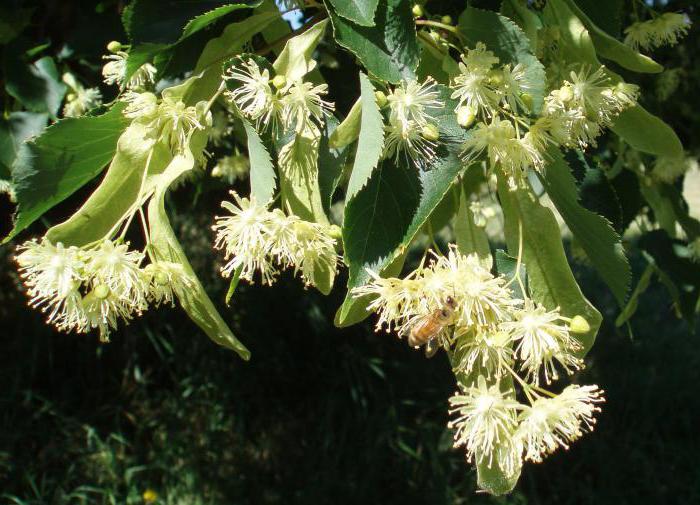
Medicinal teas should be consumed only after consulting a doctor or as prescribed by an herbalist. The fact is that any herb, in addition to a beneficial effect, can have a negative effect on the body. Therefore, do not self-medicate, so as not to aggravate the state of health.
If you still choose your own collection, then before using it, carefully study the indications and contraindications for the use of each individual component.
